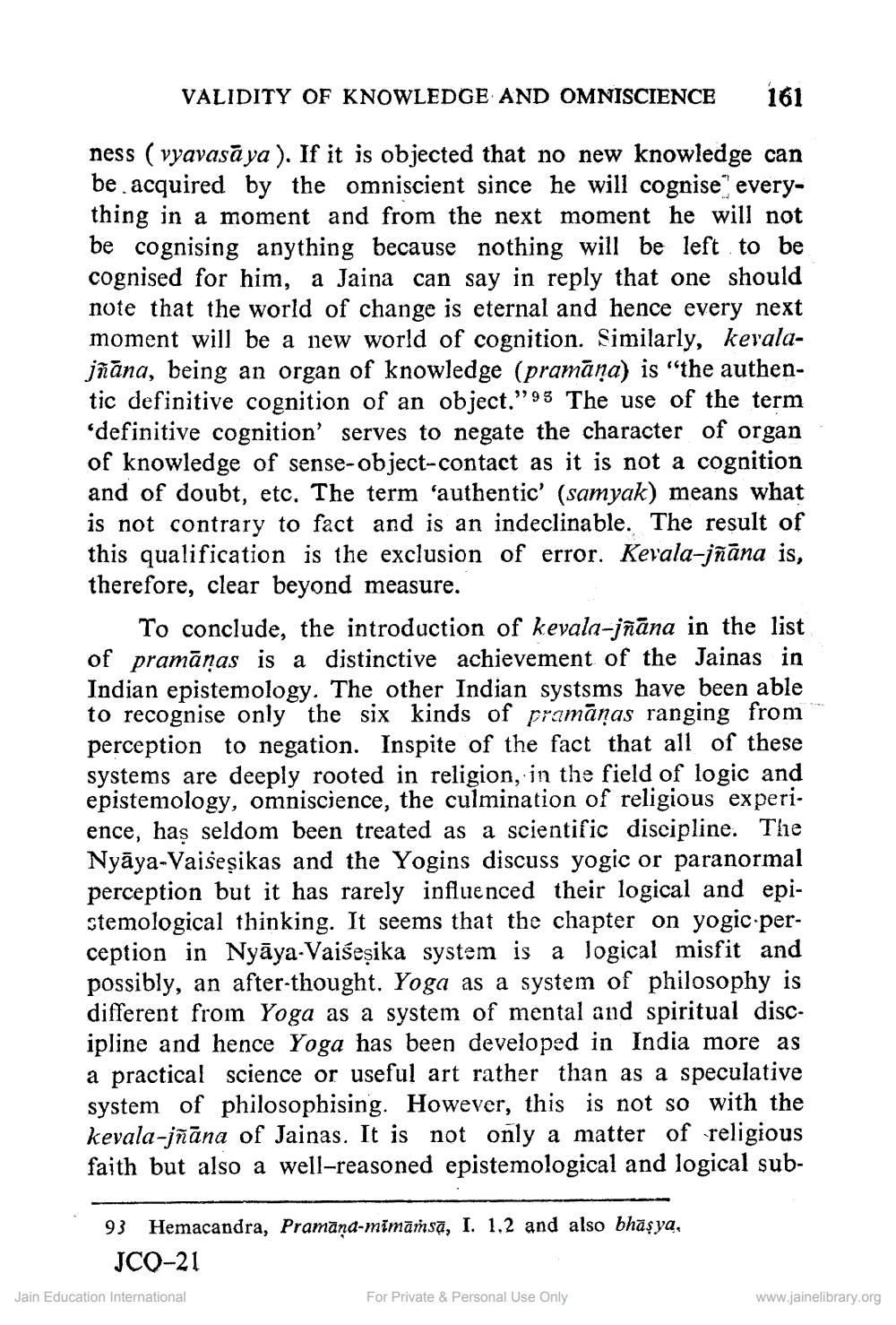________________
161
ness (vyavasaya). If it is objected that no new knowledge can be acquired by the omniscient since he will cognise everything in a moment and from the next moment he will not be cognising anything because nothing will be left to be cognised for him, a Jaina can say in reply that one should note that the world of change is eternal and hence every next moment will be a new world of cognition. Similarly, kevalajñana, being an organ of knowledge (pramaṇa) is "the authentic definitive cognition of an object."93 The use of the term 'definitive cognition' serves to negate the character of organ of knowledge of sense-object-contact as it is not a cognition and of doubt, etc. The term 'authentic' (samyak) means what is not contrary to fact and is an indeclinable. The result of this qualification is the exclusion of error. Kevala-jñāna is, therefore, clear beyond measure.
VALIDITY OF KNOWLEDGE AND OMNISCIENCE
To conclude, the introduction of kevala-jñāna in the list of pramāņas is a distinctive achievement of the Jainas in Indian epistemology. The other Indian systsms have been able to recognise only the six kinds of pramānas ranging from perception to negation. Inspite of the fact that all of these systems are deeply rooted in religion, in the field of logic and epistemology, omniscience, the culmination of religious experience, has seldom been treated as a scientific discipline. The Nyāya-Vaiseṣikas and the Yogins discuss yogic or paranormal perception but it has rarely influenced their logical and epistemological thinking. It seems that the chapter on yogic perception in Nyāya-Vaiseṣika system is a logical misfit and possibly, an after-thought. Yoga as a system of philosophy is different from Yoga as a system of mental and spiritual discipline and hence Yoga has been developed in India more as a practical science or useful art rather than as a speculative system of philosophising. However, this is not so with the kevala-jñāna of Jainas. It is not only a matter of religious faith but also a well-reasoned epistemological and logical sub
93 Hemacandra, Pramana-mīmāmsā, I. 1.2 and also bhāṣya,
JCQ-21
Jain Education International
For Private & Personal Use Only
www.jainelibrary.org




